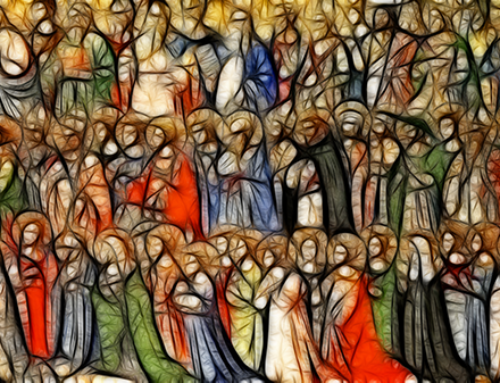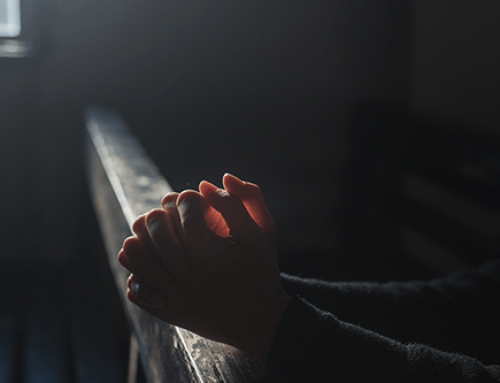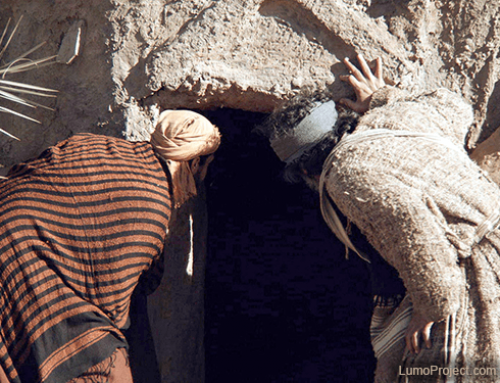 On the night He was betrayed, Jesus knew full well what He was about to suffer.
On the night He was betrayed, Jesus knew full well what He was about to suffer.
As Jesus was about to go up to Jerusalem, He took the twelve disciples aside by themselves, and on the way He said to them, “Behold, we are going up to Jerusalem; and the Son of Man will be delivered to the chief priests and scribes, and they will condemn Him to death, and will hand Him over to the Gentiles to mock and scourge and crucify Him, and on the third day He will be raised up.” (Matt. 20:17-19)
Mere days before His betrayal, as they approached Jerusalem, Jesus sent two disciples to find a donkey with her colt. He rode upon the colt as He entered Jerusalem because He knew a crowd would be waiting to welcome Him as their King. Jesus knew that the same crowd who were about to shout “Hosanna to the Son of David! Blessed is He who comes in the name of the Lord!” would, within a matter of days, become a mob who would shout, “Crucify Him! We have no King but Caesar!” (Matt. 21:1-9, John 19:15). The crowd was fickle. But Jesus loved them anyway. He entered the city and spent the next few days teaching and healing the people with compassion.
On the night He was betrayed, Jesus knew full well that Judas was about to betray Him and Peter to deny Him. He knew that soon His loyal followers would be hiding behind locked doors in fear. And so He, their Lord and Master – He who existed before all things, and Who, with His own hands, had fashioned the first man and woman in the Garden – demonstrated the depth of His love and care for them by taking on the role reserved for a lowly servant and washed their hot, dusty, smelly feet (John 13:1-11, Col. 1:15-17).
On the night He was betrayed, Jesus reassured His followers that although He would soon be leaving them, He would not forsake them. He would send the Holy Spirit who would come alongside them and bring help and grace from the Father. The Holy Spirit, He assured them, would not only come near, but He would remain with them and even dwell within them (John 14:16-17).
On the night He was betrayed, Jesus commanded His followers to love one another, not merely as friend to friend, or even as brother to brother, but to love one another as He Himself had loved them (John 13:34-35). As Jesus had loved and served with compassion and humility, knowing their frailties and even their duplicities, so they must love one another. It would be by their love that others would know they were followers of Jesus, when they loved as Jesus had loved.
On the night He was betrayed, Jesus, Son of God and Son of Man, agonized over the suffering He was about to endure. He suffered extreme mental and emotional anguish. As He prayed in the Garden of Gethsemane that evening, a decisive battle took place as Jesus battled against His own human will that wanted desperately to avoid the pain of the path before Him. The battle was won and Jesus declared, “Not My will, but Thine be done!” (Luke 21:41-44).
On that night, Jesus was betrayed with a kiss (Luke 22:47-48).
He was mocked. He was scourged and beaten. He was forced to carry the cross on the flesh of His raw and bleeding back. And He was crucified.
… and while being reviled, He did not revile in return; while suffering, He uttered no threats, but kept entrusting Himself to Him who judges righteously; and He Himself bore our sins in His body on the cross, so that we might die to sin and live to righteousness; for by His wounds you were healed. (1Pet. 2:23-24).
Peter tells us that Jesus kept entrusting Himself to the Father. In the midst of His suffering, Jesus, made the conscious choice to remain obediently on the cross. The writer to the Hebrews tells us,
Although He was a Son, He learned obedience from the things which He suffered. (Heb. 5:8)
And the apostle John writes,
Therefore when Jesus had received the sour wine, He said, “It is finished!” And He bowed His head and gave up His spirit. (John 19:30)
Jesus’ life was not taken from Him. He held on until every last moment of suffering had been completed in order that the Father’s plan of salvation would be fully accomplished. Only then, when it was finished, He gave His spirit up.
On the night He was betrayed, Jesus walked the path the Father placed before Him, knowing full well the depth of suffering He faced. How did Jesus have the courage and determination to remain steadfast? I believe it was love that upheld Him – His love for His Heavenly Father; His love for the people of a broken world who desperately needed a Savior; and the assurance that His Father’s love would carry Him through.
Pastor Cindy
From the series: Easter





So many people want to see into the future. They consult psychics, read the daily horoscope, or visit a fortune teller; but how many could truly handle that information. Christ lived every day knowing how his life would end. Nevertheless, he entered this world as an infant and bore the brutal death of crucifixion in order that we might be saved. Could you handle that kind of truth?
Perfect read for the start of Holy Week. The emphasis on Love, at the end, is so very important. Thanks for this.